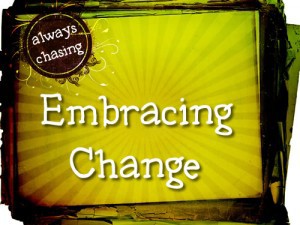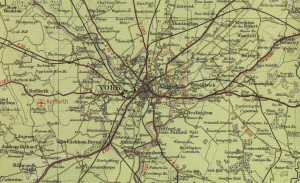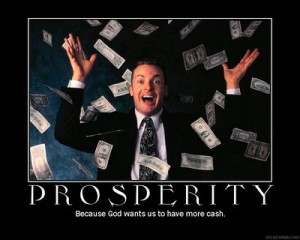 Is love always benign? The answer to this simple question is no. People who declare that they love other individuals do not necessarily have the best interests of the other at heart. Love can sometimes be selfish so that the needs of the lover can take precedence over the one who is the object of affection. Also one person may love another because that is the only way that the lover can feel alive. They may fear the loss of the other because they know their self-esteem and their physical well-being would decline if the beloved departed from their life. This kind of love we describe as clingy and manipulative. It is hardly a gateway to fulfilment for either party. The grasping love of one party may also be a kind of self-medication, attempting to resolve one or other of a number of mental health issues, possibly depression or chronic loneliness. Clearly the recipient of such love, if they choose to hang around, is not receiving a life-enhancing affirmation of love from another person.
Is love always benign? The answer to this simple question is no. People who declare that they love other individuals do not necessarily have the best interests of the other at heart. Love can sometimes be selfish so that the needs of the lover can take precedence over the one who is the object of affection. Also one person may love another because that is the only way that the lover can feel alive. They may fear the loss of the other because they know their self-esteem and their physical well-being would decline if the beloved departed from their life. This kind of love we describe as clingy and manipulative. It is hardly a gateway to fulfilment for either party. The grasping love of one party may also be a kind of self-medication, attempting to resolve one or other of a number of mental health issues, possibly depression or chronic loneliness. Clearly the recipient of such love, if they choose to hang around, is not receiving a life-enhancing affirmation of love from another person.
Selfish love can be described as toxic as it can lead to the recipient of such love being diminished or harmed. But there are distinctive forms of toxic love which emerge out of certain Christian settings. We have already seen something of this in our discussions on ostracism. A J. Witness mother refuses to speak to a daughter who wishes to leave the group. This mother will convince herself that she is acting out of love. She will know at one level that the reason for treating her daughter and her family as though they were dead is because the Church insists on it. But she will persuade herself that the harsh treatment is really an expression of love because, through it, she will be putting pressure on that daughter to return to the way of salvation, as interpreted by the Witnesses. The act of ‘disfellowshipping’ or shunning will be an extraordinary example of love that is no love.
Similar treatment will be meted by some Christians toward a member of the family who comes out as gay. So convinced are some Christians that the gay person is on the way to certain hell that they use every form of disapproval they can muster, including the silent treatment, verbal abuse or general harassment. All this done in the name of a kind of ‘tough love’. The idea is that such love will make the ‘sinner’ see the error of their ways. Perhaps they are following Paul’s instructions in I Corinthians over the expulsion of an immoral brother, in order to hand him over to Satan. It is hardly likely that such ‘love’ will be experienced as other than as toxic, and the recipient is going find it extremely hard ever to be reconciled to the dispenser of such ‘Christian’ love.
Sometimes the form of demonstrating love is not active, but consists of failing to offer any help or support for the one who has fallen into a difficult situation. They are allowed to ‘stew in their own juice’. Because they are the victims of their misfortune, they are allowed to suffer the consequences without any practical help or compassion being offered. Somehow, once again, such passive-aggressive behaviour on the part of Christians will be interpreted by some as love. Love here means leaving someone to flounder. The hope is that by abandoning them to their situation they may come to their senses. They are reaping the consequences of their behaviour and cannot expect any kind of help.
Another form of toxic love is found among those who preach hell-fire and brimstone teaching. I do not put myself in the line of those who preach this way, but from my memory of such sermons in the past, it was always hard to detect any trace of love in what was being said. And yet the preacher of such sermons has, I believe, genuinely convinced himself that his preaching is an act of compassion, reaching out to the damned and the unsaved. His ‘love’ is being declared because he believes he is reaching out from a place of blessing into another world of depravity and filth. His preaching may yet, he hopes, rescue a few from their ultimate punishment. From the perspective of the person who is the intended object of such rantings, the preaching comes over as an action of arrogant and bigoted hate. How dare the preacher make so many assumptions about the inner attitudes of the ‘unsaved’? How dare the preacher make assumptions about the attitude of Jesus himself towards the ‘unsaved’? If Jesus means anything at all to the non-saved, he stands for a love that enables one to grow as human beings. Jesus calls us all, not to some formulaic confession of faith, but to glimpsing and growing into a life of richness, beauty and creativity under God.
One thing we know about human love, as it touches us and our families, is that it enables growth. It is under a regime of the right kind of love that children grow up and flourish in happiness and joy. The same sort of love sustains us all throughout life. Christians believe that we grow and change and flourish under the beneficent care that God shines upon us. That divine love, one that sustains us even when we are down and encourages us to stand straight when life is hard, is a source of nourishment for our whole being, body and soul. At one level the Christian faith seen from this perspective is incredibly simple. Love one another in the same way that you are loved by God. Pondering the words of Jesus ‘just as I have loved you’, should successfully steer us away from any version of toxic love that is taught under the banner of the Christian faith.







